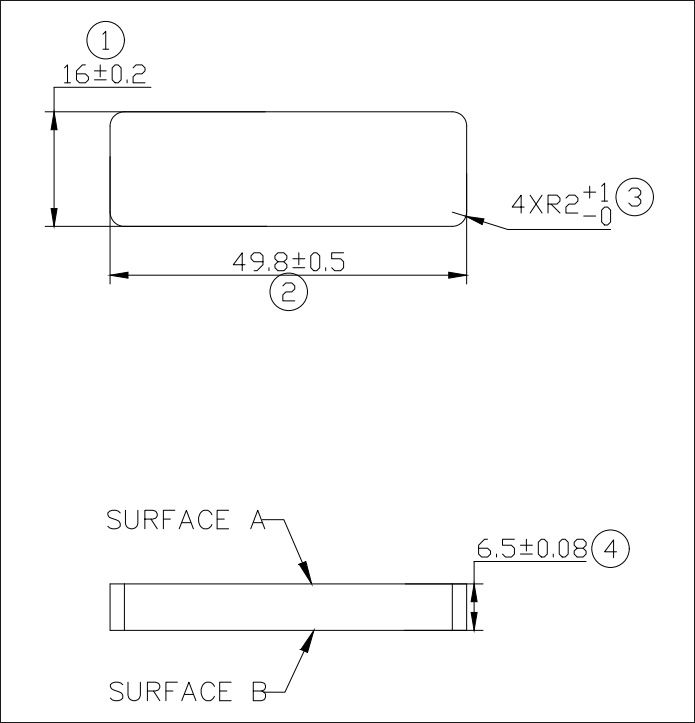In the previous article, we have introduced what is a ring magnets? Today, this article continues to introduce the related issue of what is a rectangular magnet? Including the characteristics of rectangular magnets, types, uses, dimensional drawings, material selection and so on.
Rectangular magnet definition;
Rectangular magnets are magnets with a rectangular cross-section, some are also called block magnets, bar magnets, whose aspect ratios can be adjusted as needed, and can have different sizes, thicknesses, and magnetization directions to suit different applications.
Typical dimensional drawings of rectangular magnets, This rectangular magnet in the picture has the requirement of chamfering the R angle

Main characteristics of rectangular magnets;
Variety of Shapes: Rectangular magnets can be available in different sizes and proportions, such as flat, long, narrow, large, and small, to suit different application scenarios.
Magnetization direction: you can choose to magnetize along the length direction, width direction or thickness direction.
Understand the schematic of the magnetization direction of a rectangular block magnet
Installation Convenience: Rectangular magnet's are easy to glue or install on various planes, suitable for plane positioning, adsorption and other occasions. At the same time, it can also be fixed by drilling screw holes on the magnet to increase the firmness of installation.
Check out this rectangular countersunk magnets.
Material Composition: Can be made from a variety of magnetic materials, the most common include: neodymium, ferrite, samarium cobalt, aluminum nickel cobalt.
Common applications for rectangular magnets;
Rectangular magnets are used in a wide range of applications including industrial automation, automotive industry, consumer electronics, lamps, fire protection systems, packaging, toys and games, sporting goods, machinery and equipment, sensors and more.
Rectangular magnet selection;
Suggestions for material selection: for room temperature environments that require strong magnetism and small size, NdFeB material is the most suitable. For cost-sensitive and low magnetic requirements, ferrite is a good choice. For high temperature environment (higher than 200℃) stability and better magnetism, samarium cobalt can be chosen.
Suggestions for size selection: Magnets used in electronic devices usually require thinner designs such as 1-2mm. furniture or door magnets may use 2-5mm thickness. Industrial fixtures or heavy duty fixings may require magnets 10mm or thicker. Magnetic lifting equipment may use 20mm or more thickness.
The above is for the general knowledge of rectangular magnets, I hope to help you, such as there are still questions you can contact the website online customer service.
Related Rectangular Permanent Magnets;
Rare Earth Neodymium Rectangular Magnets
Ceramic Ferrite Rectangular Magnets
 China Neodymium And Ferrite Magnets Manufacturer & Supplier
China Neodymium And Ferrite Magnets Manufacturer & Supplier 


